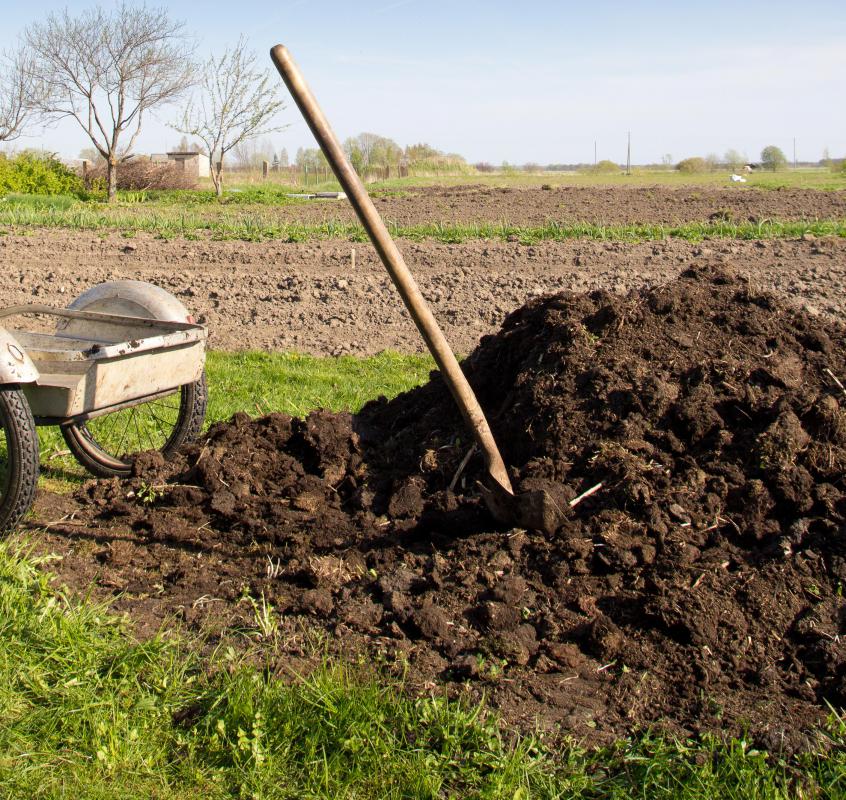At WiseGEEK, we're committed to delivering accurate, trustworthy information. Our expert-authored content is rigorously fact-checked and sourced from credible authorities. Discover how we uphold the highest standards in providing you with reliable knowledge.
What is Organic Farming?
Organic farming is a method of farming which involves the use of ecologically friendly techniques to raise crops and animals. Many nations offer organic certification to farmers who follow organic farming guidelines, and farmers can also practice organic methods without pursuing certification. This farming method is viewed as an alternative to conventional agriculture, in which a wide variety of means are utilized in farming.
When farmers work organically, they avoid the use of synthetic chemicals for everything from soil management to pest control. Instead, they rely on techniques like crop rotation and composting to keep soils healthy, natural pest control rather than sprays to eliminate agricultural pests, and non-chemical means to control infections and disease. Organic farming eschews the use of antibiotics and growth hormones in animals, and genetically modified organisms (GMOs) are usually not grown on organic farms. Full organic standards vary from nation to nation, with departments of agriculture usually maintaining current standards in publicly available databases.

This type of farming has been practiced in one way or another for centuries, but organic farming arose as its own movement in the 1930s, as industrialized agriculture started to become more common. The development of advanced chemicals and other artificial tools to support farming led many farmers to turn to these techniques to save money and compete in the market, and some farmers also felt that the modernization represented an improvement. Others wanted to stick with more traditional ecological techniques, developing organic farming and other offshoots such as biodynamic farming.

Some people claim that a number of benefits are involved in organic farming, ranging from a higher nutritional value in crops grown in complete, complex soil to healthier environments around farms which use organic methods. Some of the claims about organic farming are difficult to substantiate, such as claims that organically produced milk is better than conventionally produced milk, while others are more easy to prove, such as the claim that not using antibiotics can reduce the development and spread of antibiotic-resistant bacteria.

Goods produced on an organic farm tend to be more expensive, because organic farming is more labor intensive and the tools for farming organically tend to be more expensive. Simply getting organic certification is very costly, as it requires a number of inspections and tests to analyze farming methods and the conditions on the farm to confirm that it adheres to organic standards. Some people feel that the cost is worth the benefit, and are willing to pay a premium for organic goods.
AS FEATURED ON:
AS FEATURED ON:



















Discussion Comments
@Ivan83 - Good points. It is also worth noting that organic farming is nothing new. In fact, it is probably better to call organic farming just farming because that is the way that the entire world got its food for all of human history up until just 150 years ago.
It is amazing how quickly we got away from our traditional agricultural roots. Farming declined at a huge pace throughout the 20th century. Yield went up even as farms were closing everywhere and farmers were abandoning the craft. Farming became about corporate business practices and chemicals.
Unfortunately, organic farming, like lots of things that start small and well intentioned, is growing at a huge pace and beginning to stray from the ethic that initially inspired the movement. There are now organic farms that rival the size of factory farms. There are also traditional food producers that are jumping on the organic bandwagon by interpreting the organic standard in the loosest way possible and slapping a fancy label on their products promoting their sustainability.
The sad truth is that lots of things that are labeled organic are really not any better for you or for the earth than the worst stuff you find in the grocery store. It may turn out that it is impossible to maintain the spirit and conscious of organic farming and do it on a scale that meets nation wide demand.
I think one important and exciting fact about organic farming that often gets overlooked is that the easiest and most environmentally responsible way to participate in this alternative economy is to simply grow things yourself. Your own backyard is the best organic garden you could hope for.
Even if you do not have access to land you can successfully grow a huge range of fruits, herbs and veggies in containers or planters. The small scale makes it easier to garden in an organic way because you can avoid chemical fertilizers and poisons. And when you are ready to harvest you just walk into your backyard and retrieve your dinner. No carbon footprint and the freshest produce possible.
Post your comments